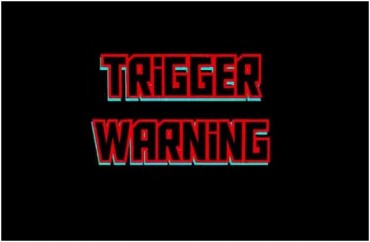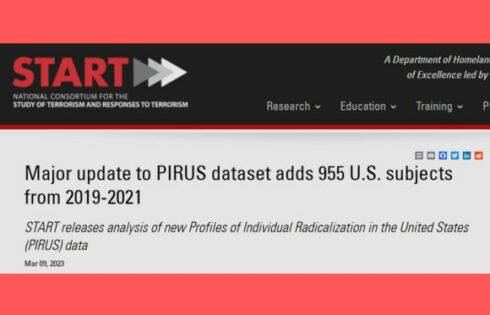
Good for George Washington University Provost Forrest Maltzman: This past Wednesday he said that he would not “enact a University-wide policy on trigger warnings.”
As reported by The Hatchet, Maltzman indicated that such an approach “would infringe on academic freedom.” Professors themselves could decide whether to offer them or not, he said.
“I’m not in favor of requiring them and I’m not in favor of prohibiting them. I think individual faculty need to make decisions that will vary based upon their course content and what they think is in the best interest of sort of engaging our students in critical thinking,” Maltzman noted.
But students on both sides of the issue wish there was some sort of “official rule” regarding triggers.
Mandated trigger warnings should not be enforced and a vague definition of the warnings makes them controversial, [Co-President of the Young America’s Foundation Brandon] Whitehill said. He added that verbal warnings to prepare students are “common sense,” but said exemptions for students who use the warnings as an excuse to avoid conflict and debate should not be tolerated.
“What I see a lot is trigger warnings are used as a pretense to kind of be warned about something and then kind of plug your ears and not hear what comes next just because it makes you uncomfortable,” he said. “Therefore, you remove yourself from the situation.”
MORE: Prof issues cleverly sarcastic trigger warning: ‘Energy, stress, quiz, grade’
Amber Singh, the vice president of Students Against Sexual Assault and a former Hatchet reporter, said trigger warnings should be required on syllabi so that students feel prepared for certain readings or so they can drop classes that would trigger them.
Singh compared the warnings to telling a friend who is coming over for dinner that a meal was cooked with peanuts, in case he or she is allergic. In that scenario, a dish without peanuts would create a safe space, she said.
“It’s not to say that it’s ending all conversation about ever having peanuts in the kitchen,” she said. “It’s just saying that there are some people who might get really sick if there are peanuts in the kitchen.”
Michele Kimball of the School of Media and Public Affairs notes that “triggered” students should seek professional help — since “the triggering topic itself will never ‘go away.’”
While that’s certainly a logical assessment, Kimball doesn’t seem to have much confidence in today’s college-attending young adults:
“My big concern is if you just launch into cross-burning or threats or a litany of profanity, and they don’t know that this was coming, they’re gonna be so mentally shocked that I don’t think they’re able to focus their thoughts and think critically about what we’re discussing.”
Wow, really? Just imagine: “Did she just say the F-word? She did?? ARRRRRRRGH!! Lemme outta here!!”
MORE: Several colleges require faculty to use trigger warnings – just not explicitly
MORE: Students add trigger warnings to posts on Pokemon GO, U.S. Constitution, ‘white men’
Like The College Fix on Facebook / Follow us on Twitter
IMAGE: YouTube





Please join the conversation about our stories on Facebook, Twitter, Instagram, Reddit, MeWe, Rumble, Gab, Minds and Gettr.